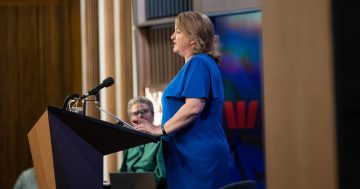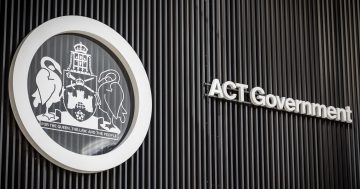 The Workplace Gender Equality Agency (WGEA) is celebrating Australia-first workplace reforms to provide millions of employees across the country with access to their employer’s gender pay gaps.
The Workplace Gender Equality Agency (WGEA) is celebrating Australia-first workplace reforms to provide millions of employees across the country with access to their employer’s gender pay gaps.
Welcoming the reforms, Chief Executive of WGEA, Mary Wooldridge said the passage of the Workplace Gender Equality Amendment (Closing the Gender Pay Gap) Bill 2023 meant the Agency would be required to publish employer gender pay gaps for Commonwealth public sector and private sector employers.
“The Australian-first measure covers the workplaces of approximately 40 per cent of the nation’s workforce,” Ms Wooldridge said.
“For the first time, from 2024 employees will have access to the key indicator of how their organisation is performing on gender equality,” she said.
“Publishing employer gender pay gaps will provide deeper insights on their employer’s progress, while job-seekers can get a clearer indication of a prospective employer’s commitment to ensuring the contributions of all employees are equally valued and rewarded.”
Ms Wooldridge said this was also an opportunity for employers who may have been slow to prioritise gender equality to get serious about change.
She said WGEA data showed that employers gained a competitive edge when they made gender equality a priority.
“Analysis of workforce data reported by employers that hold WGEA’s Employer of Choice for Gender Equality (EOCGE) citation has shown dedicated action gets results, with these employers closing their gender pay gaps faster than others,” the CEO said.
“One of the recurring messages from our most recent recipients of the EOCGE citation was that as soon as they started on the path to gender equality, they saw the benefits and they wished they had started earlier,” she said.
“A key aim of publishing gender pay gaps is to help employers show improvement over time.
“That is why an essential part of the legislative reforms is to give employers the option to provide a statement that gives context to their gender pay gap results and outlines their plans for action.”
Ms Wooldridge said the reform package strengthened WGEA’s world-leading dataset with mandatory reporting from 2024 of employee age, primary workplace location and CEO remuneration, as well as spurring accelerated action by requiring WGEA’s gender equality reports to be shared with governing bodies.
She said the changes also supported safer workplaces and advance implementation of the Respect@Work report with enhanced reporting on the prevalence, prevention and employer response to sexual harassment and harassment on the grounds of sex or discrimination.
“From 2024, large employers with 500 or more employees must also have policies or strategies in place to address all six gender equality indicators,” Ms Wooldridge said.











